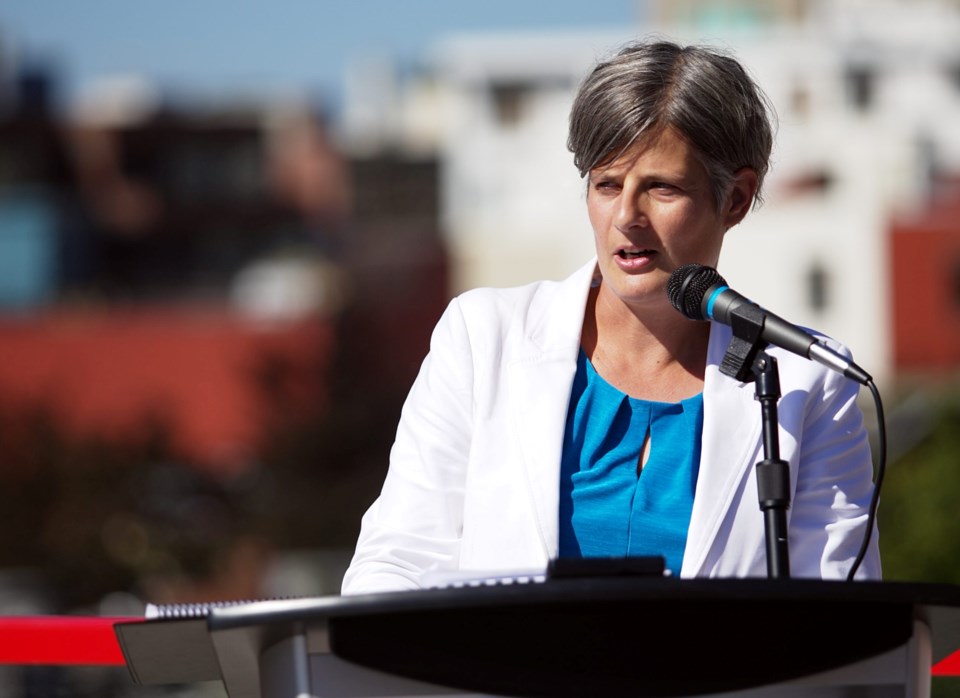Saying the consultation process is fundamentally flawed, mayors and First Nations chiefs are calling on the federal government to not approve the Kinder Morgan pipeline expansion.
“This process has failed Canadians. This process has failed British Columbians. This process has failed our First Nations and this process has failed to take into consideration the economy and the ecology of British Columbia,” Victoria Mayor Lisa Helps told a news conference with eight other mayors and one First Nations chief by her side.
Kinder Morgan wants to triple the capacity of its existing Trans Mountain pipeline, which carries diluted bitumen from oilsands near Edmonton to Burnaby for export.
The expansion would bring capacity to 890,000 barrels a day and increase tanker traffic in Burrard Inlet seven-fold.
Helps noted that last March mayors from Burnaby, New Westminster, Vancouver, North Vancouver, Victoria, Squamish and Bowen Island called on the federal government for public hearings into the Kinder Morgan proposal that would include the ability to cross examine witnesses.
That never happened.
“Once again as mayors and chiefs we stand together on the eve of the closing of the ministerial panel and we call on the federal government to reject the Kinder Morgan pipeline proposal based once again on faulty, inadequate public consultation,” Helps said.
The National Energy Board is an energy regulator that should not have the responsibility of conducting environmental assessments or First Nations consultations, said Chief Don Tom of the Tsartlip First Nation.
“We know that from Day 1 their process has been fundamentally flawed and insulting to First Nations all across Canada and here in B.C.,” Tom said.
“Vancouver spent two years researching the proposal before deciding against the pipeline, said Vancouver Coun. Andrea Reimer, chair of that city’s policy and strategic priorities committee.
“It was clear that the risks of this pipeline expansion far exceeds the very small benefit it might bring to our city and to our region,” Reimer said adding that in addition to the deficiencies in the pipeline project itself “the deficiencies in process aren’t just bad for British Columbians, they’re bad for Canadians.
“We have seen more right for our residents to act at a liquor licence hearing than they have at the National Energy Board process. We’ve seen scientific evidence not even considered and discarded but not even brought to the table by the National Energy Board,” Reimer said.
“This project will risk our way of life and our community for both today and future generations,” said Sooke Mayor Maja Tait.
New Westminster Mayor Jonathan Cote expressed frustration at the lack of consultation.
“Halfway through this process the preferred pipeline was actually shifted to be right next to an ecologically sensitive area in the City of New Westminster. This was done with very little information provided and no emergency plans provided to our fire department regarding what would be necessary if a disaster were to occur,” Cote said. “So I think communities across this province are recognizing that this process has not been able to identify the local concerns that we have in our communities.”
Thursday’s message from Helps and her colleagues contrasted with a news conference held the day before in the same spot outside the Union of B.C. Municipalities convention in Victoria where several northern B.C. mayors stood in support of getting any and all natural resources to market.
Helps said she understands the concerns of the local politicians in resource dependent economies. “My personal preference would be to see those fossil fuels kept in the ground,” she said.



